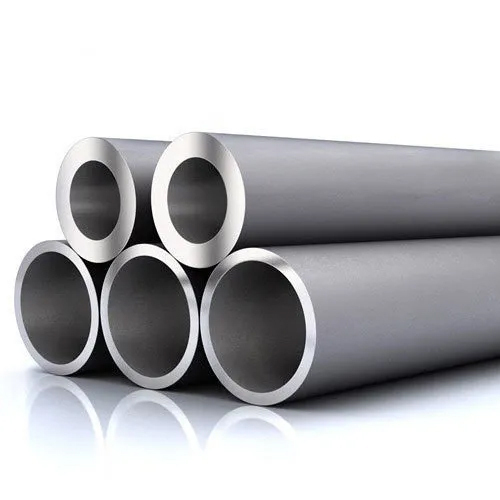
Alloy 2507/F55 belongs to the super duplex stainless steel category—a group of materials characterized by a dual-phase structure comprising both austenite and ferrite in nearly equal proportions. This balanced microstructure results in exceptional mechanical and corrosion-resistant properties, significantly outperforming traditional austenitic or ferritic steels in challenging conditions.
The typical chemical composition of Alloy 2507 includes:
Chromium (Cr) – ~25%
Nickel (Ni) – ~7%
Molybdenum (Mo) – ~4%
Nitrogen (N) – ~0.3%
Iron (Fe) – Balance
Each element plays a crucial role in enhancing specific properties. Chromium and molybdenum improve corrosion resistance, especially in chloride-containing environments, while nitrogen boosts strength and helps stabilize the duplex microstructure.
1. Exceptional Strength
One of the most significant advantages of Alloy 2507 is its superior yield and tensile strength, which is almost twice that of conventional austenitic stainless steels such as 304 or 316. This allows for the design of thinner-walled components without compromising structural integrity, leading to material savings and reduced weight.
2. Outstanding Corrosion Resistance
The high levels of chromium, molybdenum, and nitrogen give Alloy 2507 excellent resistance to:
Pitting and Crevice Corrosion
Chloride Stress Corrosion Cracking (SCC)
Uniform corrosion in acidic environments
This makes the alloy ideal for use in marine environments, chemical processing plants, desalination units, and offshore platforms—anywhere exposure to aggressive chemicals or saltwater is frequent.
Alloy 2507 also offers better thermal conductivity and lower thermal expansion than austenitic grades. This makes it a preferred choice for heat exchangers and applications involving temperature variations.
Thanks to its dual-phase structure, Alloy 2507 has excellent fatigue strength, particularly in cyclic loading environments. This is important in offshore and marine structures where wave action and mechanical stress are continuous.
Due to its robust combination of properties, Alloy 2507 is used across a wide range of industries:
Oil and Gas: For subsea pipelines, heat exchangers, pressure vessels,
and manifolds
Desalination Plants: Used in evaporators, brine heaters, and tubing
Chemical Processing: Ideal for reactors, scrubbers, and storage tanks
handling aggressive chemicals
Pulp and Paper: Withstands acidic bleaching and digesting
environments
Marine Engineering: For propeller shafts, seawater piping, and ballast
systems
While Alloy 2507 is weldable, it requires careful heat control to avoid intermetallic phase formation, which can reduce corrosion resistance. Preheating is not recommended, and post-weld annealing is generally not required unless the application demands extreme corrosion resistance.
Machining can be more challenging than standard stainless steels due to their high strength, but with the right tools and techniques, excellent results can be achieved.
Extended Service Life: Reduced need for replacement or maintenance
Weight Reduction: Thanks to its high strength-to-weight ratio
Operational Safety: Reliable performance in extreme conditions
Lower Lifecycle Costs: Less corrosion means fewer failures and
repairs
Sustainability: Durable and recyclable material with long-term
usability
Alloy 2507 / F55 Super Duplex Steel is a premium material that continues to prove its value in industries where performance and durability are non-negotiable. With its impressive mechanical properties and outstanding resistance to aggressive media, this alloy is a strategic choice for critical infrastructure and components.
Whether you are sourcing material for petrochemical units, marine structures, or desalination projects, investing in Alloy 2507 ensures long-term efficiency, safety, and peace of mind.
If you’re looking to source high-quality Alloy 2507 / F55 Super Duplex Steel, make sure to choose a reputable supplier with expertise in duplex materials. Precision in production and adherence to international standards are key to unlocking the full benefits of this exceptional alloy.